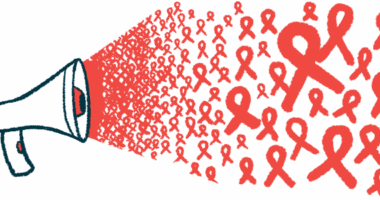What Effect Does Constant Decision-making Have on Our Lives?

Welcome back to my column, “Hidden Truths.” While I tend to write that at the beginning of most of my columns, I genuinely appreciate you checking in. You consciously decided to click on the column and made it a part of your day. You could have chosen thousands of topics and columns, but you chose this one right now. Why?
As alluded to in my last column, the goal of today’s column is to explore this very question and dive into the concept of decision-making and decision fatigue.
The Wall Street Journal notes that the average American adult is estimated to make over 35,000 decisions a day. If you are from another country, that number may even be higher. From opening our eyes to rolling in bed, to getting up and so on, we all make thousands of decisions, either consciously or subconsciously. Regardless, when a decision is made, the plan for its execution is carried out, or at least attempted.
The concept of decision fatigue means that as we make more and more decisions, our ability to make additional (appropriate) decisions goes down. Making and carrying out a decision requires energy, which eventually takes a toll on the body. In other words, we are humans and we get tired.
It needs to be mentioned that most of the evidence about decision-making and decision fatigue is based on research with “healthy” people. Those with neuromusculoskeletal disorders, such as muscular dystrophy, have limited energy to begin with. So, what can be done?
Before I answer this question, I want to refer to an article from The New York Times Magazine. It starts with a presentation of three similar court cases, and then asks the reader to guess which of the three defendants received parole. Interestingly, the article reports that the findings show that irrespective of a person’s sociocultural background or offense, it appears that time is most important in predicting a favorable decision by a judge.
As the day goes on, and more decisions need to be made, we hit our limit and make impulsive decisions that may not be for the best. Therefore, it appears that it is easier to make more decisions earlier in the day, when we are less tired. Later in the day, we may be overwhelmed.
More recently, the British Journal of General Practice reported that everyone has a limited amount of mental energy before the brain looks for a shortcut. The article mentions that this cognitive shortcut may explain why people make impulse purchase decisions or why athletes make inexplicable decisions near the end of a game. This decision fatigue leads to poor clinical decision-making and decision avoidance, which ultimately can lead to burnout.
In summary, it appears that decision fatigue can lead to a failure to recognize opportunities, as well as decisional conflicts or regret. Additionally, it leads to lower decision-making self-efficacy and increases the susceptibility to biases in decision-making. All in all, decision fatigue leads to impaired executive and cognitive functions, ultimately creating altered physiological and behavioral responses.
So, with all of that said, how can we — especially those of us with limited energy due to neuromusculoskeletal disorders — make the most of our decisions? While there is no simple answer, there are ways to mitigate and lessen the effects of decision fatigue.
First and foremost, planning and time management are key components. By planning, many of the proposed questions are answered, and decisions are made in advance, thereby saving us precious time and energy. Examples of planning include preparing meals and setting aside clothing in advance. Once my wife and I realized the importance of planning, we set out our clothes and created a weekly menu every Sunday. Therefore, I know from personal experience that planning saves a lot of time and headaches during the week.
If planning and scheduling are not a strong suit, it may be important to find someone with whom you can discuss and share, and even possibly delegate tasks. Sharing information and having a support system are ideal. Sharing information allows you to gain other perspectives and hopefully to fully understand all of your options.
Similarly, we need to think before we act. Therefore, if you are tired, give yourself a break and examine a decision later with fresh eyes. Impulsivity can lead to regretful decisions, so remove distractions and make important decisions first.
What are important decisions, you may be asking? From a psychological perspective, importance is based on Maslow’s hierarchy of needs. Your priority should be maintaining your physiological needs — food, shelter, and clothing — before anything else.
In summary, use time chunking to create priorities. You are important, but you have to believe it before anyone else does.
***
Note: Muscular Dystrophy News is strictly a news and information website about the disease. It does not provide medical advice, diagnosis or treatment. This content is not intended to be a substitute for professional medical advice, diagnosis, or treatment. Always seek the advice of your physician or another qualified health provider with any questions you may have regarding a medical condition. Never disregard professional medical advice or delay in seeking it because of something you have read on this website. The opinions expressed in this column are not those of Muscular Dystrophy News or its parent company, Bionews, and are intended to spark discussion about issues pertaining to muscular dystrophy.








Lisa Dandrea
I enjoyed this article very much. It helps me understand why I make impuslive, sometimes bad decisions. My mind is wasted tired when only half the day is through. By noon, I have given so many verbal commands (decisions) to my caregiver I am totally exhausted. Judging myself that this doesn’t seem right, after all, all I have done is tell somebody else what I need, where to move my body, what clothes to put on, what to get out of the fridge…and so on. It’s a dreadfully tiring and inefficient way to live. I’m going to take more rest breaks. It would helpful if you defined what you mean by “time chunking” - a new term for me. Thanks